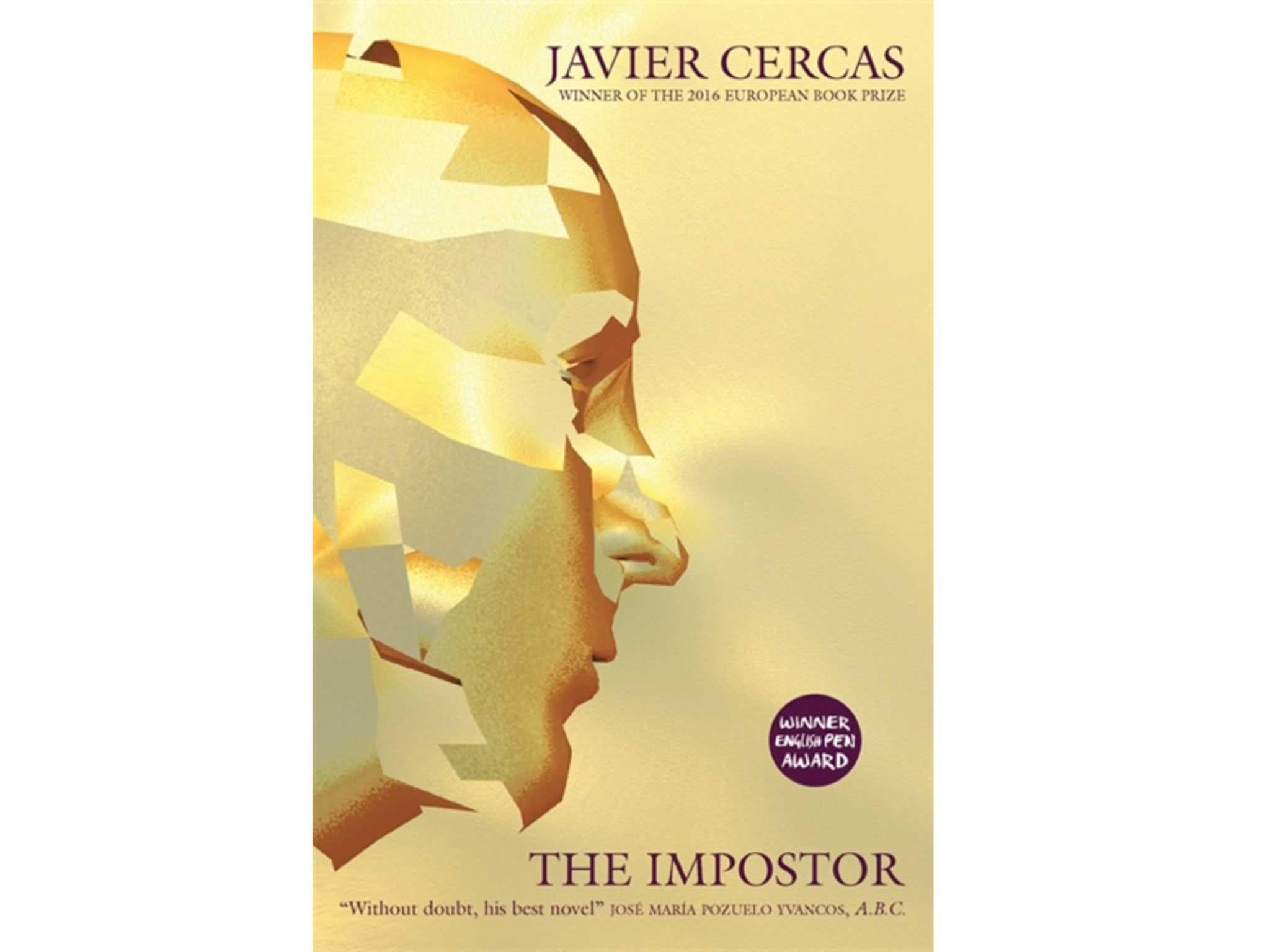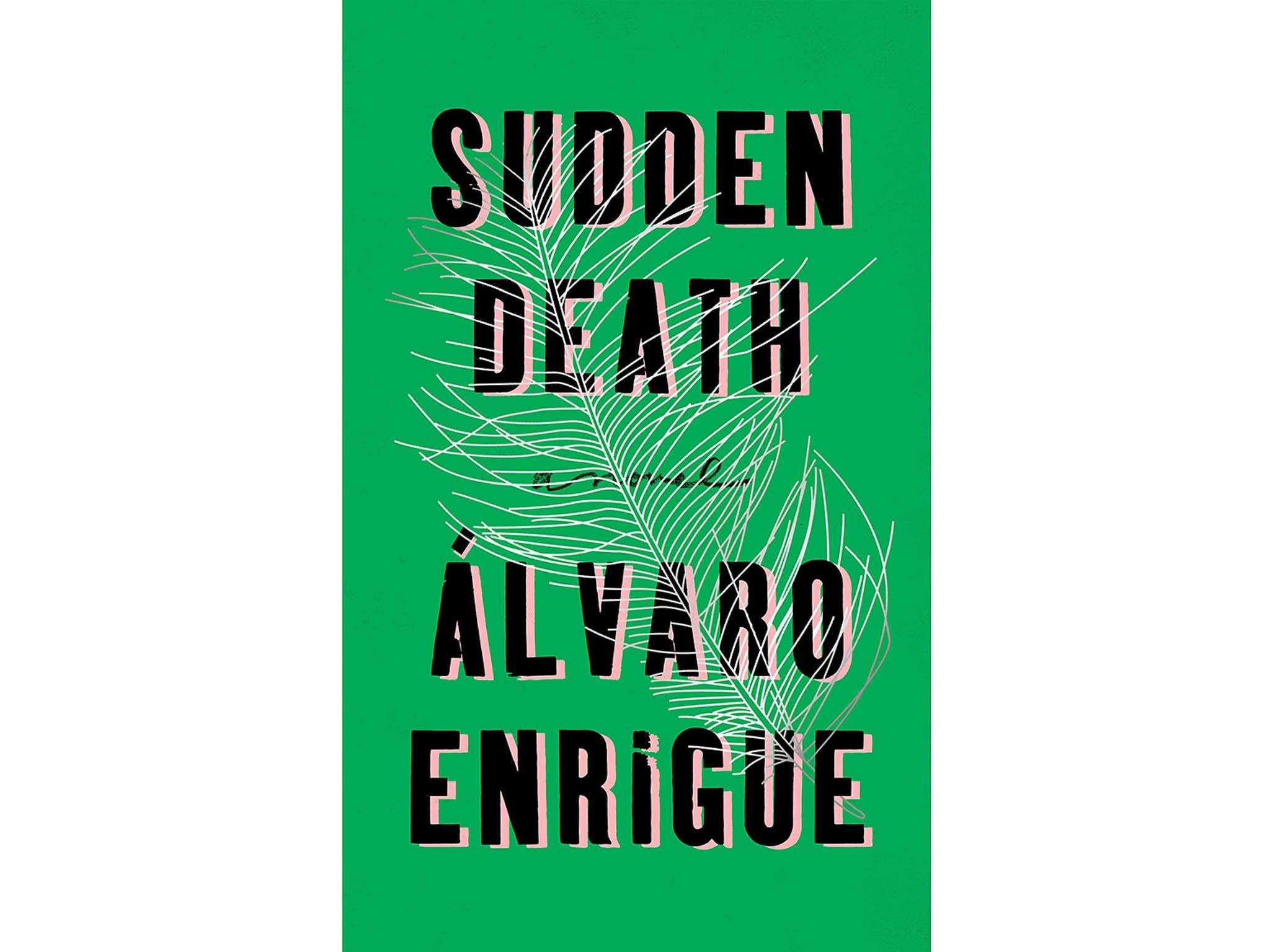9 best fiction books of 2017
From ghostly tales to intergenerational mini-epics, these are the novels that have kept us turning the pages this year

Your support helps us to tell the story
From reproductive rights to climate change to Big Tech, The Independent is on the ground when the story is developing. Whether it's investigating the financials of Elon Musk's pro-Trump PAC or producing our latest documentary, 'The A Word', which shines a light on the American women fighting for reproductive rights, we know how important it is to parse out the facts from the messaging.
At such a critical moment in US history, we need reporters on the ground. Your donation allows us to keep sending journalists to speak to both sides of the story.
The Independent is trusted by Americans across the entire political spectrum. And unlike many other quality news outlets, we choose not to lock Americans out of our reporting and analysis with paywalls. We believe quality journalism should be available to everyone, paid for by those who can afford it.
Your support makes all the difference.The past year has seen a healthy burst of literary talent from established and emerging authors alike.
From authors such as George Saunders, an American writer who excels in short fiction, we get the outstanding experimental novel Lincoln in the Bardo. From authors such as Alan Hollinghurst, on the other hand, we get more conventional (but no less outstanding) novels like The Sparsholt Affair. From Alvaro Enrigue we get a fidgety parable of the European Renaissance and from Nicola Barker we get a portrait of a sterile utopia-dystopia.
Of these novels published in 2017, we collect nine of the best here, ranging from ghostly tales to intergenerational mini-epics to bizarre but enthralling experimental works.
Lincoln in the Bardo by George Saunders: £18.99, Bloomsbury

George Saunders is an American writer known for his short stories, and the premise of his Man Booker-winning novel is a weird one: Willie Lincoln, son of President Lincoln, has just died of fever and finds himself caught in the “bardo”, a sort of spiritual antechamber to the next life (according to Buddhists). In the real world, Willie’s father is attempting to quell the throes of grief for the sake of his embattled republic, fighting its war against the Confederacy. One of the best features of this strange story is its amplitude: Saunders effortlessly stitches together several divergent themes and stories without jeopardising any narrative robustness. Lincoln in the Bardo is a sharp and fluent fictional foray into the depths of grief – and a worthy winner of this year’s Man Booker Prize.
Winter by Ali Smith: £16.99, Hamish Hamilton

Ali Smith is one of Britain’s truly exceptional writers and Winter – the “sequel,” in the loosest sense of the word, to her fantastic 2016 novel Autumn – makes for a welcome addition to an already monumental oeuvre. The novel focuses on a family Christmastime drama in which the past, present, truths and lies merge and entwine to such a degree than the pursuit of truth and order becomes pointless, and the characters’ best bet is to try and draw some harmony out of the discord. Ali Smith’s Winter is a characteristically rich novel, full of compelling characters, beautiful prose passages, semi-veiled allusions to current events and even some mini-homilies on Shakespeare.
Mischling by Affinity Konar: £8.99, Atlantic

Affinity Konar’s Mischling tells the story of two girls – Jewish twins, Pearl and Stasha – who are sent to Auschwitz and become patients of Josef Mengele, the infamous “doctor” whose repulsive experiments on living subjects prompted a decades-long, ultimately fruitless manhunt. Setting a novel in the Holocaust is always a risky undertaking but Konar (herself a Polish Jew) expertly distils the raw horror of Auschwitz with the first person narrative, which alternates between Pearl and Stasha, giving the reader a glimpse into the humanity that endured in an institution like Auschwitz – an institution built with the explicit purpose of shattering its inmates’ humanity.
The Imposter by Javier Cercas: £14.99, Quercus

Javier Cercas’s book, The Impostor, newly translated from Spanish into English, is less a novel than a half-fictionalised biography of Enric Marco, a former anarchist and trade unionist who, emboldened by the nationwide introspection of post-Franco Spain, wrote and spoke vociferously about his experiences in German concentration camps – experiences that were, in 2005, exposed as falsehoods. In The Impostor, which won last year’s European Book Prize, Cercas delves into his country’s history, eloquently retelling the story of a nation that, like so many others, has terrible violence and tyranny lurking within living memory. Like Stefan Hertmans’s phenomenal, half-fictional study of his grandfather (a book about which we’ve written previously), the unsteady relationship between fiction and non-fiction sits at the heart of The Impostor.
Reservoir 13 by Jon McGregor: £14.99, HarperCollins

This novel from the Booker Prize-nominated writer Jon McGregor is set amid the sedate hills, quiet streams, farms and small churches of rural England. A couple of holiday-goers have lost their 13-year-old daughter and the novel’s narrative ostensibly deals with the subsequent efforts to find her. As the search drags on, however, the narrative broadens and frays, coming to resemble a Brueghel landscape in which a lot is happening but no single story predominates. Characters age, seasons pass, memories grow dimmer (or sharper) but even the most banal incidents are imbued with suspense, because of the missing girl. McGregor’s novel resembles those of DH Lawrence with its slow, meditative narrative that explores how profound disharmony can lurk unseen in quiet, outwardly tranquil towns.
H(a)ppy by Nicola Barker: £20, Cornerstone

As you might have guessed by the title, Nicola Barker is a writer with a well-known fondness for eccentric writing. Barker sets her latest novel, H(a)ppy, in a future utopia-dystopia, where all humanity’s afflictions (disease, war, pain and all the rest) have been remedied. It’s a world characterised by its monotony and lifelessness – something that would make H(a)ppy an intolerably dull read if it weren’t for the exquisite and unpredictable prose that earned Barker this year’s Goldsmith Prize. Barker has written of how she strives for “fluidity” in her writing, and fluidity is without a doubt the most prominent feature of this novel, which dips into poetry as abruptly as it springs up a diagram.
The Sparsholt Affair by Alan Hollinghurst: £20, Pan Macmillan

Like McGregor, Alan Hollinghurst has written a novel that spans generations, starting in 1940s Oxford, where students are adapting to the wartime phenomena of guard duty and meat rationing, up to present-day London. Through the novel, Hollinghurst (whose literary career has earned him a Booker Prize, among other accolades) follows the lives of gay men of different generations, navigating their way through different eras of post-war England. Writing with the same slow, poetical fastidiousness that has characterised his other novels, Hollinghurst beautifully recounts the stories of these men whose lives have been changed, in one way or another, by the inhumanly handsome David Sparsholt.
Home Fire by Kamila Shamsie: £16.99, Bloomsbury

Like much of the great literature of antiquity, Antigone is a play that lends itself to infinite reinterpretation. Last year, Copenhagen’s magnificent Royal Theatre staged its Ødipus og Antigone. In Lebanon a few years ago, a group of refugees staged their own version of Antigone in which they drew parallels with the civil war in their native Syria. Kamila Shamsie is a British-Pakistani novelist whose most recent book, Home Fire, reimagines Antigone in modern-day Britain, where, among other things, the protagonist’s brother has recently fled Britain to join Isis. Home Fire was longlisted for this year’s Man Booker Prize and, given its timeliness, its elegant prose and its incisive study of duty and family, it’s easy to see why.
Sudden Death by Alvaro Enrigue: £14.99, Vintage

Alvaro Enrigue is a Mexican writer and the author of four highly praised (albeit mostly untranslated) novels. Another bizarre but intelligent book, Sudden Death is a novel that, like Lincoln in the Bardo, encompasses several themes and characters (and continents) as Enrigue loosely tells the story of a tennis match between his two chosen protagonists: Michelangelo Merisi da Caravaggio, the Italian painter, and Francisco de Quevedo, the Spanish poet. Around this seemingly inconsequential game of tennis, Enrigue builds a discursive narrative that grows and grows into a panoramic vista of Europe in the Late Renaissance, drifting from Tudor England to Paris to Rome to Spain and even to Mexico, where Cortes and his thuggish band of conquistadors are slaughtering their way through the Americas.
The Verdict: Fiction 2017
Lincoln in the Bardo begins with a dissonant chorus of bizarre, meandering monologues that initially throw the reader off – but once you ground yourself in the narrative, learn the characters’ names, their pasts, their personalities and their occasionally antipathetic desires, Saunders’s novel reveals itself to be one of the most sensitive and imaginative books of the year.
All listed prices are RRP